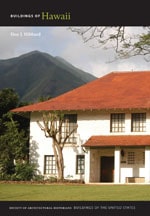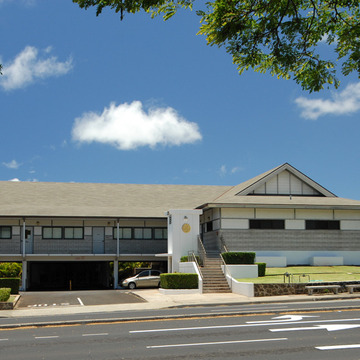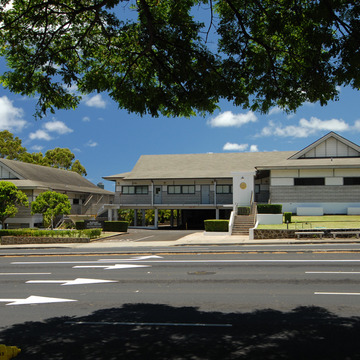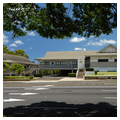The Buddhist Study Center represents a modern application of traditional Japanese forms. The irimoya roofs, with their pronounced gab-lets and gentle slopes, set the tone for the two buildings. The distinctive handling of concrete block laid with stringcourses grounds the composition, while the well-proportioned upper wall panels and windows add lightness. The varying grades of the elevated buildings and their connecting stairway contribute visual drama.
Arthur A. Kohara was born and raised in Honolulu. He graduated from the University of Oklahoma, having studied under Bruce Goff, and remained there several years to teach. In 1960, he returned to Hawaii, and in the following year opened his own office. In addition to the Buddhist Study Center, Kohara designed Hongwanji temples in Kealakekua (1980; 81-6630 Mamalahoa Highway) on Hawaii; Kahului (1968; 291 S. Puunene Avenue) on Maui; and Kapaa (1970; 1170 Kuhio Highway) and Lihue (1980; 3-3556-A Kuhio Highway) on Kauai. Other works include the Wahiawa library (1965; 820 California Avenue) and Pearl City library (1969; 1138 Waimano Home Road) on Oahu.


















